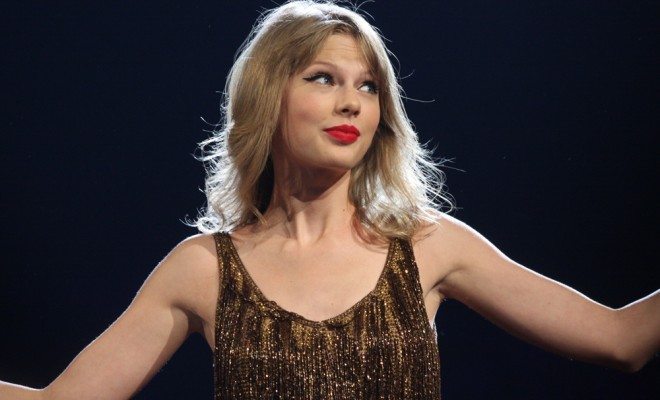 Image courtesy of [Eva Rinaldi via Flickr]
Image courtesy of [Eva Rinaldi via Flickr]
News
Taylor Swift and Spotify: Never Ever, Ever Getting Back Together?
Taylor Swift made waves this week when she pulled all of her music from the popular streaming site Spotify. The 24-year-old singer-songwriter’s newest album, “1989,” was never put on the site, and her older music can no longer be found there.
Spotify is a music streaming site that was launched in the United Kingdom in 2008, and has been in the United States since 2011. It is able to stream music so effectively because of deals it has worked out with various record labels. Labels and artists are compensated for Spotify’s use, although to be fair probably not as much as they would if they had actually sold the songs or albums; however, as Spotify explains it, there is tangible benefit for the artists. Spotify provides a service that’s convenient, relatively cost-effective, and easy to use. It hopes to divert those who would otherwise pirate or get songs illegally. In Spotify’s eyes, artists are better joining up with them and making a little money than not making anything because of piracy. Spotify explains its success:
Spotify has already made considerable progress towards restoring the value lost to piracy and other less well monetized forms of music consumption. As of March 2013, Spotify had over 24 million global users. 18 million of them were using our free tier, wherein listeners pay for their consumption by viewing and listening to advertisements. At that time, as well, more than 6 million users were paying a $9.99 / £9.99 / €9.99 monthly subscription to use Spotify’s Premium tier.
However, if an artist or its label does not want to have music on Spotify, they can take their music down. T-Swift is by no means the first artist to do so, and others simply never allowed their music on the site in the first place. The Black Keys, Beyonce, and Radiohead are all good examples of other popular artists whose music is not available to stream through Spotify. The argument is that services like this are predatory and take advantage of artists. Swift has long been against services like what Spotify offers. In a Wall Street Journal op-ed this summer, she wrote:
Piracy, file sharing and streaming have shrunk the numbers of paid album sales drastically, and every artist has handled this blow differently. Music is art, and art is important and rare. Important, rare things are valuable. Valuable things should be paid for. It’s my opinion that music should not be free, and my prediction is that individual artists and their labels will someday decide what an album’s price point is.
To its credit, Spotify has handled this marvelously. It’s capitalized on Swift’s retreat from the site by using it as a social media marketing opportunity. The music streaming site tweeted at the singer with a pretty creative message:
We love @taylorswift13 as much as you do. Here's a message we hope brings her back http://t.co/yRm5bfNV23 #justsayyes pic.twitter.com/1lj2JB1SMI
— Spotify (@Spotify) November 3, 2014
It also got some fun and creative use out of one of T-Swift’s more famous songs, again on Twitter:
We were young when we first saw you but now there’s 40MM who say stay, stay, stay. It’s a love story baby #justsayyes pic.twitter.com/n6tHkG8GCq
— Spotify (@Spotify) November 3, 2014
Spotify’s actions on Twitter really kind of sum up what this debate is all about–the Internet has changed how we do all of this. From how we listen to music, to how we respond to scandals, to how we are able to interact with the public, technology has completely radicalized all of it. T-Swift and other artists’ dedication to their art is admirable, to be sure, but is it really the smartest course of action? Spotify, and all other streaming services, are on to something here. There will always be ways to find this stuff illegally; you’re better off getting people to pay a little for it than nothing at all.
Now, T-Swift is rich enough and has good enough brand recognition that my guess is that this is more of a political statement than a financial decision. It’s a decision that she can afford to make, but I don’t know that it will create any real change in the industry. While it’s a shame that the music industry is no longer what it once was, I highly doubt that it will end up going backward and we’ll all revert to purchasing music. T-Swift may just do better shaking it all off and going back to Spotify.








Comments